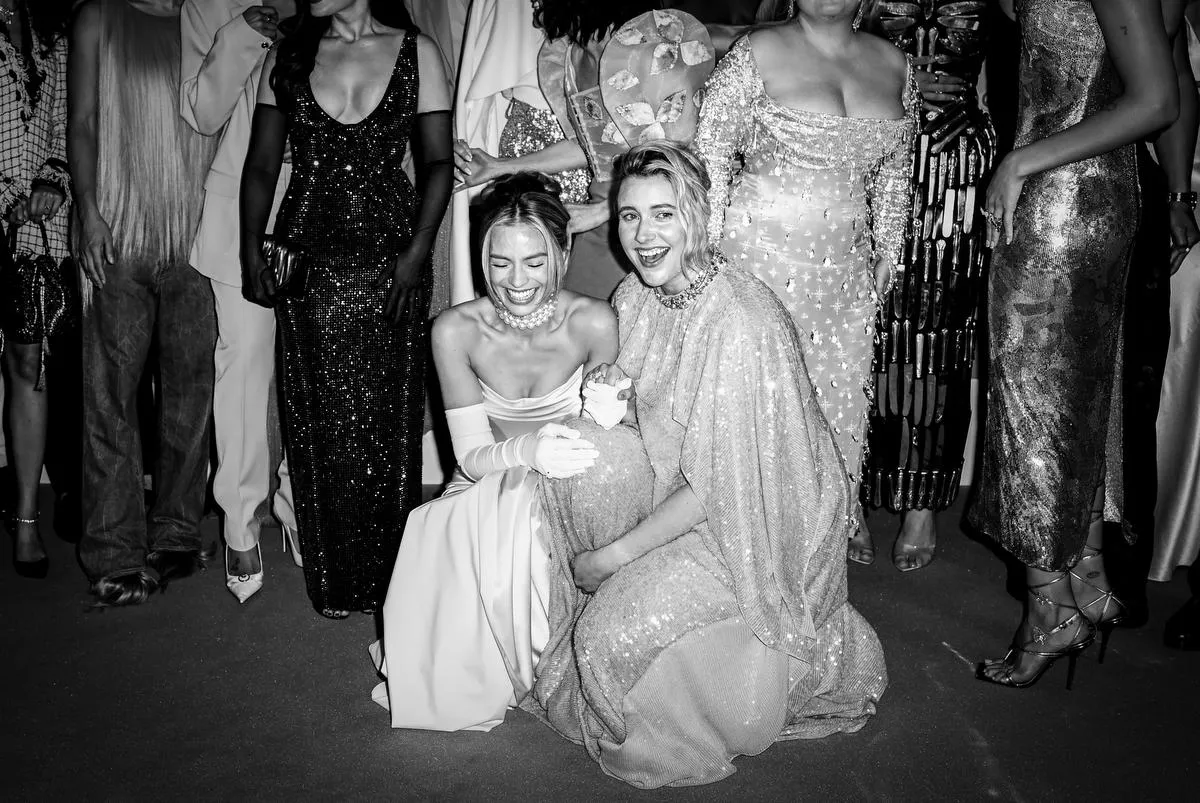
The three movies Greta Gerwig has made since she added writer/director to her stellar resumé six years ago are “Lady Bird,” “Little Women” and now “Barbie.”
Each one addresses a different vision of womanhood — from rebellious youth to struggling sisters to a questing commercial icon — but they share a universal theme of female agency.
As both actor and filmmaker, the California-born Gerwig is drawn to stories of women who are the strong centre of the storms that surround them.
“I hope I never make a movie that doesn’t pass the Bechdel test,” Gerwig once told me in an interview. (U.S. cartoonist Alison Bechdel created the test: to pass, a film must feature at least two women talking to each other about something other than a man.)
After more than a decade as a popular actor, usually appearing in films directed by men, Gerwig hit the stratosphere with “Lady Bird,” her first flight as a solo writer/director and my pick as the best film of 2017. She received two Oscar nominations: Best Director and Best Original Screenplay. (Her first two features, “Lady Bird” and “Little Women,” received a total 11 Oscar noms, including Best Picture for both.)
The comic star of “Frances Ha” and “Mistress America,” who turns 40 on Aug. 4, found the perfect avatar in Saoirse Ronan for “Lady Bird’s” title rebel, a story inspired by Gerwig’s own Catholic-schoolgirl upbringing in Sacramento. Always chafing at rules, Ronan’s Lady Bird cheekily chooses Stephen Sondheim’s “Everybody Says Don’t” as her audition song for a high school musical.
“Little Women” followed in 2019. Gerwig put her mark on Louisa May Alcott’s classic story of four sisters — Jo, Meg, Beth and Amy March — growing up in New England and forging their identities during the American Civil War. The movie brought Gerwig her third Oscar nomination, for Best Adapted Screenplay.
In the film, Gerwig drastically changes Alcott’s timelines and places the emphasis on the March sisters as adults. The intent is to show them not as girls but as women, after they’ve discovered more about themselves. Saoirse Ronan plays aspiring writer Jo, who is adamant that she’s not going to spend her life finding a man: “I intend to make my own way in the world.”
Jo’s sentiments are echoed in the journey of Margot Robbie’s title character in “Barbie,” which opens July 21. The familiar doll of childhood dress-up games magically transforms into a human, leaving her plastic fantasy behind to discover the challenges of the real world. She’s accompanied on her journey by uninvited boyfriend Ken (Ryan Gosling), but it’s Barbie who drives the pink getaway car.
Gerwig co-wrote the screenplay with fellow filmmaker Noah Baumbach, her life partner and frequent collaborator. She calls the movie and its diverse cast “humanist” in its approach to self-actualization.
There are record-scratch moments of clarity in “Barbie.” In one, all the beautiful people are swaying together in a brightly coloured disco to Dua Lipa’s “Dance the Night,” while congratulating each other on living such fabulous lives. Then Margot’s Barbie, who’s becoming aware of real life outside plastic Barbie Land, stops the music and abruptly asks, “You guys ever think about dying?”
She’s questioning the superficiality of her existence, something that Gerwig’s title character in “Frances Ha” grapples with when she shouts, “Don’t treat me like a three-hour brunch friend!” at an acquaintance.
“This line came out, I think, because it’s really about the people who you can give really cursory or ‘un-in-depth’ answers to and they’ll just accept it and just keep going …” Gerwig said of that 2013 film.
“We just accept it, and that to me is someone you see for brunch and you talk about your life, but you don’t have to offer anything to them. Like a Facebook friend that you occasionally have a meal with.”
Gerwig’s protagonists, the ones she plays and the ones she writes, all seem to find themselves in a whirlwind of social stress and change. But then, Gerwig has always thrived on chaos.
You can see it in her grand arrival scene in the 2015 screwball comedy “Mistress America.” Gerwig’s character, Brooke, strides down a set of red stairs in New York’s Times Square to greet a newcomer to the city. Arms outstretched, her smile a mile wide, she glides through a jostling mob of people.
Nothing seems to faze Gerwig. When she was flying to Toronto in the autumn of 2017 to promote “Lady Bird,” she was stranded by bad weather at the Washington, D.C., airport.
There was no way she was going to get to Toronto to do that evening’s Q&A at a public preview screening. She bought herself a pizza, found a quiet corner of the airport and took out her smartphone. She then made a video of herself conducting her own amusing Q&A, which she emailed to her Toronto representatives to play at the screening.
It’s been quite the Hollywood ascension for Gerwig, who originally wanted to be a playwright, not a moviemaker. But she couldn’t get into any of the graduate programs for playwriting she applied to.
“If theatre was my first love, then cinema was my grown-up love,” she told me in an interview.
“But it wasn’t something that I imagined I could have a career in, because it just seemed so unlikely that I would be able to do it. I was writing all the time and making things all the time, and acting in other people’s things and film felt like it was kind of the Wild West … it all seemed like someone was going to call me and say, ‘OK, now you have to find a real job.’
“But as I learned more and more, and grew into it more and more, I just became certain that what I wanted to do was write and direct.”
JOIN THE CONVERSATION
does not endorse these opinions.







:format(webp)/https://www.thestar.com/content/dam/thestar/entertainment/movies/2023/07/16/greta-gerwig-is-a-fearless-talent-with-barbie-the-filmmaker-takes-on-her-most-high-profile-challenge-yet/little_women_greta_gerwig.jpg)
:format(webp)/https://www.thestar.com/content/dam/thestar/entertainment/movies/2023/07/16/greta-gerwig-is-a-fearless-talent-with-barbie-the-filmmaker-takes-on-her-most-high-profile-challenge-yet/greta_gerwig_noah_baumbach_barbie.jpg)








